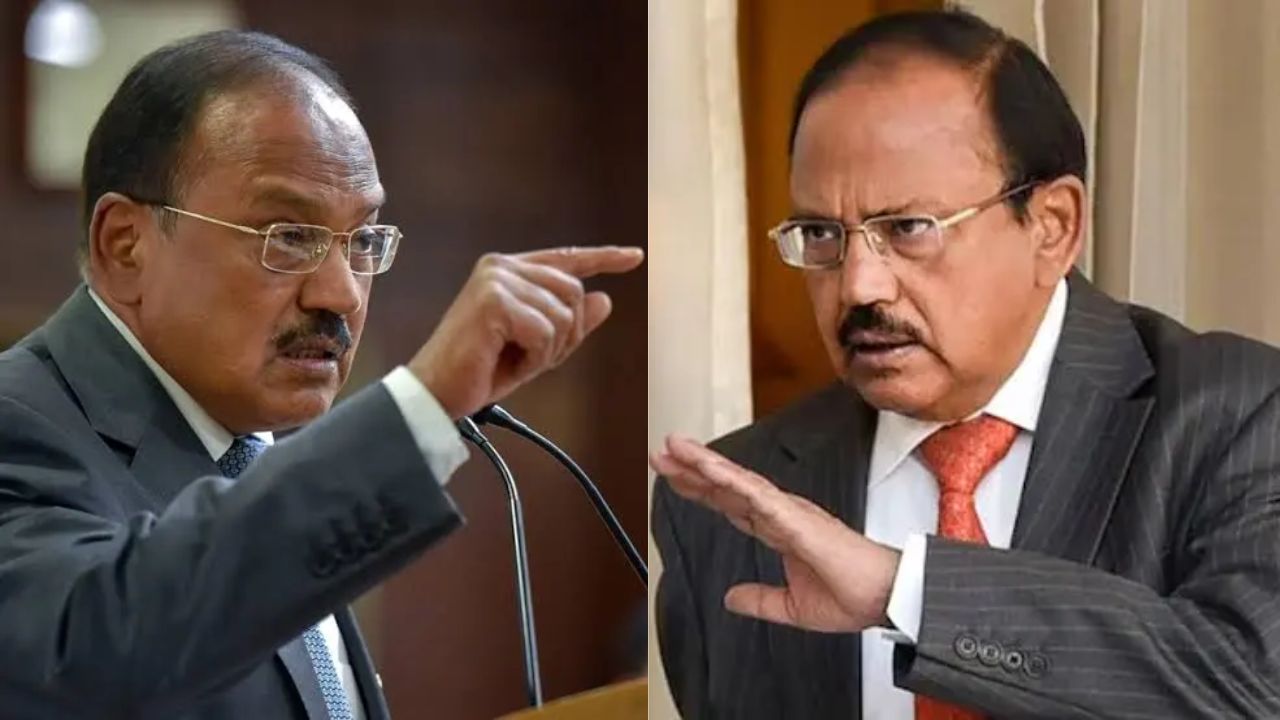NSA Ajit Doval cautioned that non-institutional regime changes in countries like Bangladesh, Sri Lanka, and Nepal have created instability. Speaking on governance, he said poor governance, corruption, and weak institutions can bring down even the strongest empires and democracies.

Democracy is successful, but it also has its dangers: Ajit Doval
New Delhi: National Security Advisor (NSA) Ajit Doval said that democracy has given many successes to the world, but it has also created its own problems.
He was speaking at the 6th Sardar Patel Lecture on Governance, organized by the India International Center and IC Center of Governance to mark the 150th birth anniversary of Sardar Vallabhbhai Patel.
Doval said, "Democracy has promoted the politics of division. It has become such a situation where political parties see their own interest in dividing the people instead of uniting them."
Yasin Malik claims links with Ajit Doval, RSS and Shankaracharyas: What does he mean, and why now?
From ‘politics of winning votes’ to ‘politics of breaking society’
Doval explained that today's political environment has become such that if a leader gets 25 votes out of 100, he does not try to increase his votes to 51 but adopts a strategy of dividing the remaining votes so that no one else can get the majority.
He warned that such a trend divides the society and weakens the basic spirit of democracy. “We have to be careful with this,” he said.
Giving examples from history, Doval said that “the history of both the rise and fall of great empires has depended on the quality of governance.”
He pointed out that the Roman Empire, the French Revolution, the Tsarist regime of Russia, and the Mughal Empire—all fell due to misgovernance and corruption.
Of the 37 countries whose governance weakened after World War II, 28 countries disintegrated or became failed states.
Doval said regime changes in recent years in countries like Bangladesh, Sri Lanka, and Nepal have taken place outside constitutional institutions, which is a sign of "bad governance."
The economic crisis in Sri Lanka (2022) led to the resignation of President Gotabaya Rajapaksa, and Ranil Wickremesinghe took power.
After the resignation of Sheikh Hasina in Bangladesh (2024), the interim government of Mohammad Yunus came, which has led to dormant relations between India-Bangladesh.
The recent change of power in Nepal also took place amid protests. Doval said, “Such changes show that when governance institutions become weak, even democracy cannot survive.”
Doval said that India needs to further improve its governance system. He stressed improving the legal framework, making policies in line with people's aspirations, and strengthening institutions.
He said that poor governance, corruption, economic failure, and declining internal security can weaken any nation, even if it is a democracy.
“How Dare You?” Ajit Pawar’s Reported Remarks To Woman Police Officer Spark Row
Ajit Doval's message is clear, democracy does not survive on elections alone, but on strong institutions, transparency, and good governance. If governance systems weaken, even great democracies may head towards instability and division.
His statement is a warning and a message of introspection not only for the neighboring countries but also for India.